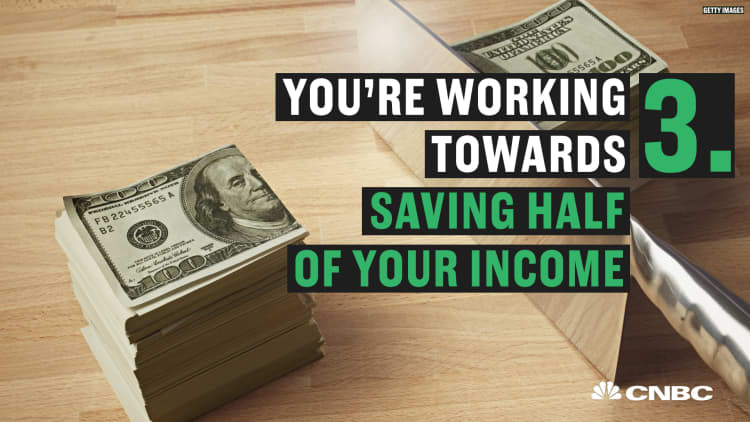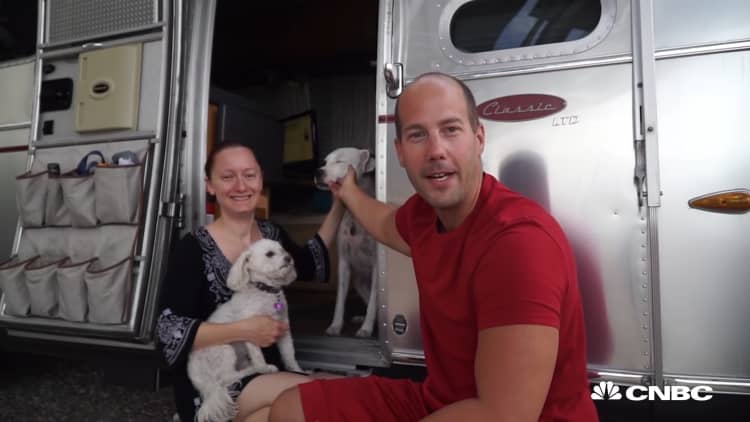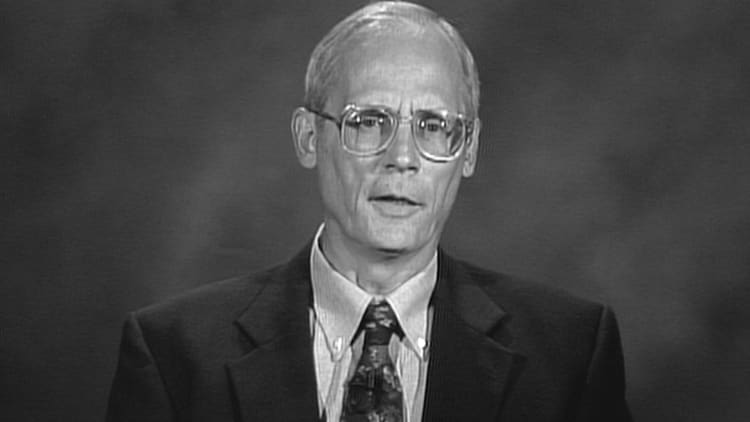Accumulating $1 million in retirement savings is symbolic, even if it means different things to different people.
It represents an aspirational amount of wealth to some, financial security to others or a milestone on the way to greater savings still. Of course, in a nation where 44 percent of the population does not have $400 saved for an emergency expense, reaching $1 million may seem unimaginable.
For a small but growing number of working women, however, it has become a reality.
Over the last 12 years, the share of women who have amassed sums of $1 million or more in their retirement plans has doubled, according to research conducted by the investment firm Fidelity, based on the 15 million participants in the 401(k) accounts it oversees. About 20 percent of its 401(k) millionaires were women as of the end of September, the firm found, up from just under 10 percent in the same period in 2005.
More from The New York Times:
Confused by the tax bills? Be glad you're not an accountant
IfyYou bought in to TIAA based on reputation, check your accounts
The private school tax break in the middle-class tax bill
"Part of it is that we've seen more women actively participating in 401(k) plans and contributing more," said Jeanne Thompson, a senior vice president at Fidelity Investments, who conducted the study. The firm said 133,000 people on its platform have achieved 401(k) millionaire status.
Financial professionals who work with women say they are not surprised that more women have crossed this threshold, particularly as more women understand the challenges they face. Women earn less than men but live longer and often spend more years out of the work force caring for young children or elderly parents.
"When I first started in the financial services industry 25 years ago, I noticed male colleagues would often share ideas and thoughts about investing and planning for retirement with each other but women really didn't," said Manisha Thakor, director of wealth strategies for women at Buckingham Strategic Wealth.
"In the intervening two and a half decades, we've seen the dramatic rise of female co- and primary breadwinners and, concurrently, the adoption of the 'this is information I need to know to protect my family' mind-set amongst women," she added.

So what can we learn from these women who have achieved millionaire status, particularly those who managed to get there on not-so-stratospheric salaries of, say, less than $150,000?
Contrary to stereotypes that women are more risk-averse, women who achieved millionaire status — and who earned less than $150,000 — are investing in stocks in a similar fashion to men: They held about 77 percent of their savings in stocks, on average, versus 76 percent held by their male counterparts. So they have clearly been helped by the growth in the stock market.
And by several measures, significant differences between the sexes fade when income is no longer a distinguishing factor. Among the 401(k) millionaires earning less than $150,000, women earn $117,000, on average, compared with $118,800 for men. Both genders have earned similar rates of return on their money — and they have been working and saving somewhere in the neighborhood of three decades.
Both men and women also tend to cross the 401(k) millionaire threshold after they hit 50, though women take a slight lead: The average age is 58.5 for women, 59.3 for men. Women may have an advantage because of their behavior. "The biggest difference is that women are saving more," Ms. Thompson said.

Indeed, women who earn less than $150,000 and have attained 401(k) millionaire status are saving 18.1 percent of their salaries, on average. That amount is complemented by a 6.8 percent employer contribution, for a total of 24.9 percent, or roughly twice as much as women over all. Men, meanwhile, save 22.8 percent total, including the employer match.
The analysis did not track whether these women were always superstar savers, squirreling away disproportionately more than average, or how their behavior may have changed over time. Workers do tend to save more, however, as they get closer to retirement (Millennial savers at Fidelity, who are in their 20s and 30s, for instance, save an average of 10.2 percent; Gen Xers (late 30s to early 50s) save an average of 11.7 percent).
Given the women millionaires' ability to accumulate such large sums, we can reasonably assume that a fair bit of good fortune played a role.
These women have been gainfully employed over long stretches of time — in fact, that's why Fidelity was able to study their behavior. It's probably also safe to assume if they had a Fidelity 401(k), they also had decent health insurance. Because they have been employed and saving, they have seemingly been able to weather financial challenges, whether it was a plunging home value in the depths of the housing crisis or, perhaps, an expensive divorce.

We do not know how many of these millionaire women were also mothers, but it also seems reasonable to infer that they probably had enough household income to cover child care — or family help — so they could continue working for 31 years, on average — with little interruption.
Not all women have that privilege, and there is a lot that needs to go right to be a successful saver. That's why Sallie Krawcheck, a former Wall Street executive who held several prominent positions before opening Ellevest, an online investing platform for women, suggests that woman get started early.
"Our research further shows that 'the biggest investing mistake women make' is not overtrading or chasing last year's winners or falling in love with a stock," Ms. Krawcheck said. "It's not getting started soon enough and not making it a habit."
To achieve millionaire status on a relatively modest income, consider the following 25-year-old worker with a starting salary of $40,000, which grows by 1.5 percent a year. To accumulate $1 million, she would need to save 23 percent of her paycheck — including any employer match — until she retires at age 65 (with an ending salary of nearly $74,000), according to Fidelity's calculations. That assumes her portfolio grows 3 percent annually, not including inflation.
She could reach that milestone by saving a total of 16 percent annually if her portfolio earned 4.5 percent, also excluding inflation.

"It's more about the continuity of the savings rate and investing for growth over the long term," Ms. Thompson said.
Accumulating large sums is obviously far easier with a higher income — the average 401(k) millionaire women earn $287,700, while men generate $354,600 annually.
And despite its symbolism, $1 million is not the right number for everyone. A credentialed financial planner (who puts clients' interests first) would take a close look at your current cash flow and expenses, make some assumptions and come up with a personalized figure for your life circumstances and goals.
But if you're looking for a broad rule of thumb, which can serve as an (overly general) guidepost, consider this: For people earning $50,000 to $300,000, Fidelity suggests they end up with 10 times their last annual income and investing at least half their savings in stocks over the long haul. In other words, those who end their careers earning $100,000 are estimated to need $1 million.
The firm estimates that will put retirees on track to replace 45 percent of their income, with Social Security providing the rest, assuming Congress strengthens the program and does not make cuts that diminish it.

Despite the progress by women, men still make up the vast majority of workers with the largest account balances — and it is hard to know when women will reach parity.
It probably traces back to uneven income levels. In the Fidelity 401(k) universe alone, for instance, the average male participant earns $113,100 compared with the average female, earning $80,600. Adding to the disparity is the fact that some women carry a disproportionate amount of responsibility at work and home.
"Many women don't have continuous career paths, they are more likely to take time off from the work force, step out for a year or two, and/or may work part time at different points in their careers," Ms. Thompson said. "These moves can all impact their long-term savings."
Like this story? Like CNBC Make It on Facebook!
Don't miss: There are 2 types of 401(k)s and most young people invest in the wrong one, says Suze Orman



